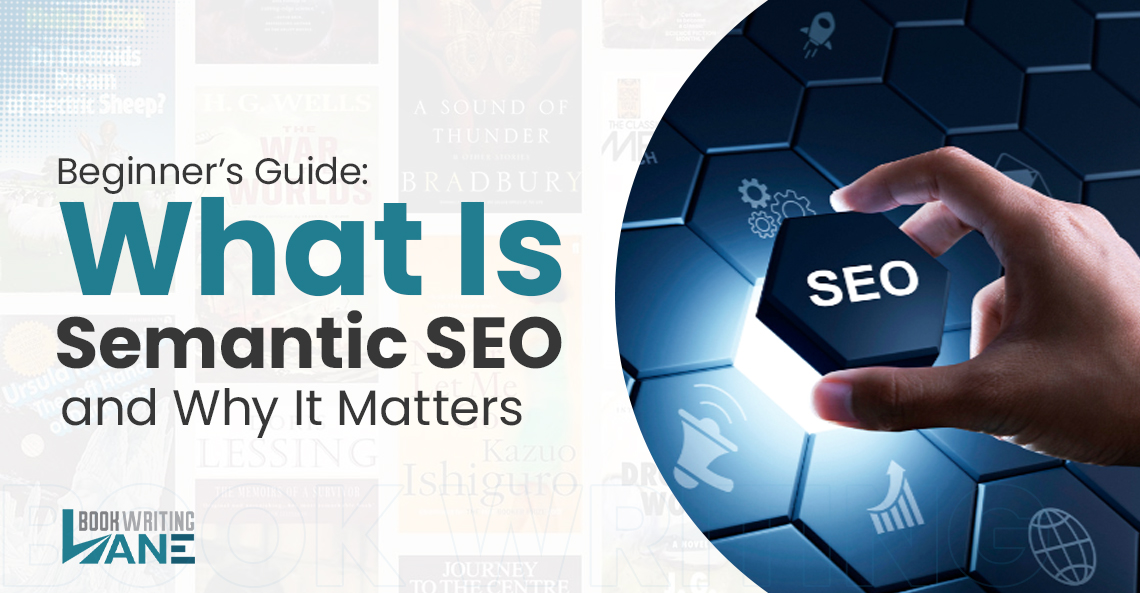Today, online search tools
are smarter, in part due to the rise of semantic SEO. Semantic SEO aims to understand
the meaning and background of search queries. Besides, it goes beyond matching
keywords. As a result, it enables search tools to grasp user intent and share
more useful and helpful results.
In the past, SEO was
more focused on keywords. However, today, search tools focus on the topic and
user intent behind a search.
Semantic SEO has
changed the way content is created. Thus, websites must focus on providing in depth,
high quality content that addresses user needs and covers topics in detail.
In this article
This article will
explore what semantic SEO is and why it matters. It will also explain how effective
SEO blog writing must
be focused on matching user intent today.
What Is Semantic SEO?
Semantic SEO is a search engine optimization strategy. It focuses on upgrading content for meaning and context, rather than just keyword matching. Besides, it involves understanding user intent and the connections between words and concepts. As a result, it provides more detailed search results.
Semantic SEO is vital for decent search rankings. Besides, it enhances user encounters. As a result, it future-proofs your SEO in the age of AI driven search.
What is Semantic SEO?
Beyond Keywords
Traditional SEO focused on using precise keywords repeatedly. However, semantic SEO goes beyond that. Besides, it understands the broader topic and context of a search query.
User Intent
Semantic SEO aims to understand why a user is searching for something.
Connections Between Concepts
Semantic SEO considers the connections between different entities, concepts, and related terms within a topic. As a result, it provides the correct meaning of the content.
Why Semantic SEO Matters
For Improved Search Tools Knowledge
Semantic SEO moves beyond simply stuffing keywords into content. Besides, it focuses on grasping the meaning and connections between different concepts.
Focus on User Intent
It helps search tools understand why someone is searching for something. As a result, it delivers more relevant results.
Relevance
By focusing on the broader topic and related concepts, semantic SEO helps search tools grasp the context of your content.
More Relevant Results
When search tools understand your content, they can provide users with more helpful results.
Increased Time on Site
By providing useful and relevant content that addresses user needs, semantic SEO makes users stay on your site for longer.
Higher Rankings
By improving your content's relevance, semantic SEO can lead to higher online rankings.
Rich Results
Semantic SEO can help your content appear in rich features and results. As a result, it boosts your site’s online presence.
Increased Trust
Semantic SEO helps you establish yourself as an authority on a precise topic by portraying proper knowledge of the subject matter.
Building Trust
By providing detailed and structured content, you can build trust with both users and search tools.
Future Proofing Your SEO
Semantic SEO is more resilient to search tool updates. Besides, it focuses on the meaning and context of content, rather than relying on precise keyword patterns.
Long-Term Strategy
By focusing on user needs and building topical authority, semantic SEO provides a long term SEO strategy.
Semantic SEO is about creating content that is useful for users and simpler for search tools to grasp. As a result, it leads to better rankings, increased presence, and a more positive user encounter.
How SEO Is Evolving Toward User Intent
SEO is evolving toward user intent. Besides, it is shifting away from solely keyword-based upgrades towards grasping the underlying needs behind search queries. This means creating content that answers the user's concerns.
Shift from Keyword Matching
Early SEO focused on matching keywords to search queries. However, search tools now use semantic search to grasp the meaning and context behind searches. As a result, it ensures more relevant results.
Content for User Intent
SEO blog writing must focus on the different types of user intent. As a result, you can create content that addresses those needs.
A suitable SEO blog for beginners must include content that is useful, engaging, and easy to explore.
Impact on User Encounter
By aligning content with user intent, websites can improve user encounters. Besides, they can engage more users. As a result, it can lead to higher conversion rates, as users are more likely to find what they need.
SEO is evolving from a keyword focused practice to a user centric approach where knowing and fulfilling user intent is vital. Besides, this shift is driven by advancements in search rules.
Why Should SEO Blog Writing Be Focused on Matching User Intent?
SEO blog writing must focus on matching user intent. Besides, when you know what users need when they enter a search query, you can focus on effective SEO blog writing for your website with useful content. As a result, it leads to higher online rankings and user pleasure.
Improved Rankings
Search tools prefer content that aligns with user intent. By assessing search queries and understanding user needs, you can tailor your SEO blog writing approach to provide the details they need.
Engaging Users
When your SEO blog for beginners aligns with user intent, it connects well with users and keeps them engaged.
A suitable SEO blog for beginners tells search tools that your content is useful. As a result, it further boosts your rankings.
Final word
Standard SEO has evolved into
semantic SEO, which shows how search tools comprehend and structure web
content. Standard SEO is mainly focused on matching precise keywords to search
queries. However, semantic SEO understands the user intent behind the search
query.
Semantic SEO involves finding
and grasping concepts within your content. Besides, it detects how they relate
to each other and the search query. As
a result, search tools can better match your content
with user search intent.
By providing useful
content that aligns with user intent, semantic SEO helps your website rank well
online. So, wait no longer and explore semantic SEO today.
FAQs
Why must SEO blog
writing be focused on user intent today?
SEO blog writing must
be focused on user intent today because search engines prioritize results that
satisfy the user's underlying goal or need. By understanding and aligning
content with user intent, SEO blogs can improve their rankings, increase
engagement, and drive conversions.
What is semantic SEO?
Semantic SEO is an
SEO strategy that focuses on optimizing content for meaning and user intent
rather than just matching keywords. It helps search engines better understand
the content and its relevance to user queries. As a result, they deliver more
helpful and relevant results to users.
How can semantic SEO
ensure digital success today?
Semantic SEO, which
focuses on understanding the intent and context behind search queries rather
than just matching keywords, is crucial for digital success today. It helps
websites improve rankings, increase user engagement, and ultimately drive more
qualified traffic.


